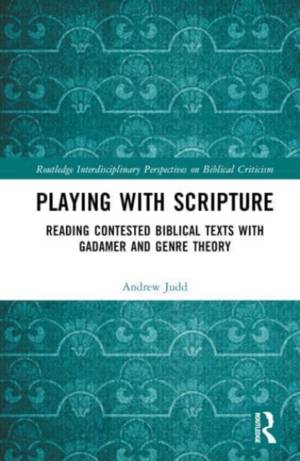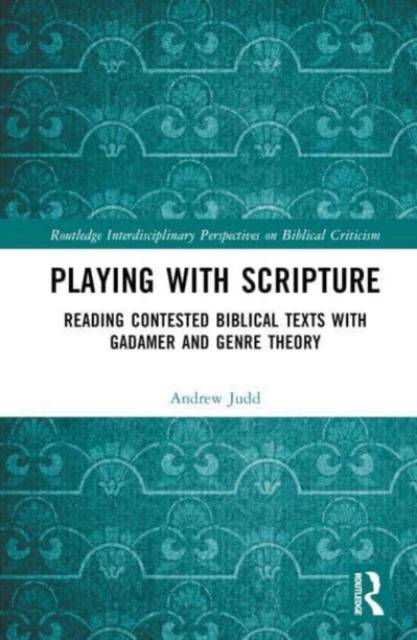
- Afhalen na 1 uur in een winkel met voorraad
- Gratis thuislevering in België vanaf € 30
- Ruim aanbod met 7 miljoen producten
- Afhalen na 1 uur in een winkel met voorraad
- Gratis thuislevering in België vanaf € 30
- Ruim aanbod met 7 miljoen producten
Omschrijving
This book puts a creative new reading of Hans-Georg Gadamer's philosophical hermeneutics and literary genre theory to work on the problem of Scripture. Reading texts as Scripture brings two hermeneutical assumptions into tension: that the text will continually say something new and relevant to the present situation, and that the text has stability and authority over readers. Given how contested the Bible's meaning is, how is it possible to 'read Scripture' as authoritative and relevant? Rather than anchor meaning in author, text or reader, Gadamer's phenomenological model of hermeneutical experience as Spiel ('play') offers a dynamic, intersubjective account of how understanding happens, avoiding the dead end of the subjective-objective dichotomy. Modern genre theory addresses some of the criticisms of Gadamer, accounting for the different roles played by readers in different genres using the new term Lesespiel ('reading game'). This is tested in three case studies of contested texts: the recontextualization of psalms in the book of Acts, the use of Hagar's story (Genesis 16) in nineteenth-century debates over slavery and the troubling reception history of the rape and murder in Gibeah (Judges 19). In each study, the application of ancient text to contemporary situation is neither arbitrary, nor slavishly bound to tradition, but playful.
Specificaties
Betrokkenen
- Auteur(s):
- Uitgeverij:
Inhoud
- Aantal bladzijden:
- 228
- Taal:
- Engels
- Reeks:
Eigenschappen
- Productcode (EAN):
- 9781032623221
- Verschijningsdatum:
- 22/01/2024
- Uitvoering:
- Hardcover
- Formaat:
- Genaaid
- Afmetingen:
- 156 mm x 234 mm
- Gewicht:
- 517 g

Alleen bij Standaard Boekhandel
Beoordelingen
We publiceren alleen reviews die voldoen aan de voorwaarden voor reviews. Bekijk onze voorwaarden voor reviews.











